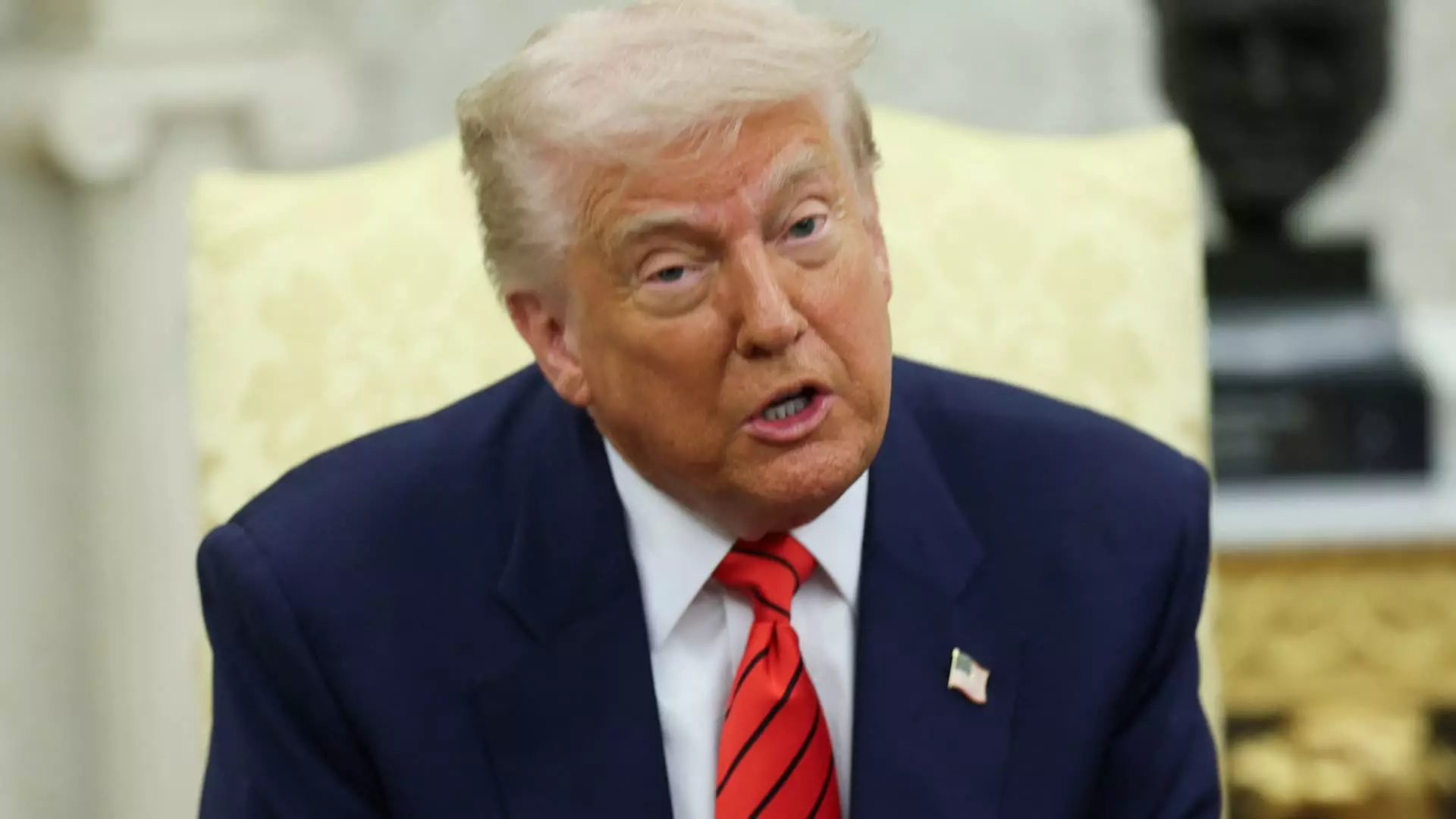In a striking divergence from his administration’s narrative, former President Donald Trump recently stated that the United States does not need to pursue trade agreements with international partners. This assertion raises eyebrows given the administration’s emphasis on securing bilateral talks for weeks. Trump’s perspective—that the U.S. holds the bargaining power in these engagements—reflects a distinctly center-right liberal view. This ideology embraces a tough stance on globalization while advocating for the protection of American markets.
Trump’s claims suggest an abandonment of the traditional diplomatic strategies that underscore deal-making as a means of fostering international relationships. Such an approach finds its roots in the belief that trade agreements benefit both parties involved. However, Trump seems bent on asserting that the U.S. market is so desirable that other nations should voluntarily adhere to American trade standards without formal agreements. This mindset could either be seen as visionary or dangerously naïve, depending on one’s perspective on international relations.
Contradictions and Market Reactions
Trump’s public dissent regarding the urgency of signing trade deals seems to contradict his earlier statements highlighting the imminent arrival of various agreements with countries like India, South Korea, and Japan. While investors and corporate leaders keenly await substantive progress that could counteract the looming threat of a trade-induced economic slowdown, they find themselves caught in a whirlwind of mixed messages from the administration. As markets reacted negatively to Trump’s comments, one has to wonder about the stability of economic policy under such fluctuating rhetoric.
The inconsistency between Trump’s remarks and the declarations of his treasury secretary underscores a fundamental fault line within the administration. In claiming that his aides have overpromised, Trump implicitly acknowledges a disconnect in communication that could hinder effective governance. This exposé does not just reflect his frustrations but underscores the precariousness of relying on a singular figure’s narrative—a formula that could lead to more volatility in both domestic and international markets.
The Illusion of Power in American Exceptionalism
The notion that America can dictate terms without reciprocation from trade partners hinges on a deeply rooted belief in American exceptionalism. Trump characterized the U.S. as a “super luxury store,” suggesting that foreign nations inherently crave what America has to offer. While this may seem empowering, it flouts a basic principle of international trade: reciprocity. The suggestion that nations should aspire to benefit the U.S. market without formal agreements raises questions about the long-term viability of such a strategy. Is the U.S. really prepared to operate unilaterally in an ever-interconnected global economy?
The uncertainty of such policies can deter potential investments and partnerships. Market leaders rely on structure and predictability, which are not typically associated with a capricious approach to trade. Long-standing relationships built on mutual benefit can erode if one party continually insists on operating on a different set of rules. The risk may outweigh projected gains, leading to less favorable outcomes for America in the grand scheme of global economics.
Rethinking Trade Approach: The Need for Balance
As Trump attempts to redefine American trade policy, it may warrant reconsideration of balance instead of unyielding dominance. Embracing targeted yet flexible strategies could facilitate cooperation while ensuring U.S. interests are protected. Negotiating agreements can offer pathways to stability and new opportunities. In essence, while the assertion of strength may resonate with certain voter bases, it risks alienating crucial partners, threatening to turn allies into adversaries.
Moreover, one must contemplate whether the goal of relegating other nations to dependent roles is sustainable or even desirable. Rather than positioning the U.S. as a luxury store that others must beg to shop at, a collaborative approach could yield benefits that extend beyond immediate gains. History has shown that robust trade relations foster goodwill, which can be critical in times of geopolitical tension.
Ultimately, examining the ramifications of Trump’s trade philosophy unveils a crucial tension within center-right liberalism—between advocating for strong, independent policies and establishing cooperative international relationships. The balance between these spheres will be vital for any administration seeking to impose a lasting economic legacy.

